by Alexandra Modell and Stephen Bonzak
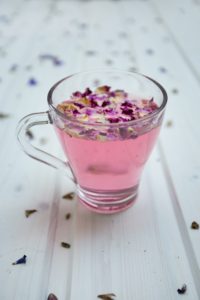 Self-care practices are key to living an awakened existence. Traditional spiritual disciplines have always been associated with health systems that advocate for lifestyle practices that support the physical form, the intrinsic energy system and the psycho-emotional self so that the practitioner can endure and accept the challenges of life and the discipline itself.
Self-care practices are key to living an awakened existence. Traditional spiritual disciplines have always been associated with health systems that advocate for lifestyle practices that support the physical form, the intrinsic energy system and the psycho-emotional self so that the practitioner can endure and accept the challenges of life and the discipline itself.
Strength in Numbers
Perhaps the most important aspect of self-care is seeking out a teacher and/or community to assist one on the path of self-development and self-healing. The wisdom of a qualified teacher and the synergy of a community of practitioners can help one maintain focus and make choices that support a healthy lifestyle.
The Present of Presence
Self-care is also rooted in practices that help one cultivate wisdom, which includes refining one’s mind and heart. “Presence practices” support one to live in the moment as a way to best deal with the ups and downs of life.
Metta meditation. This includes sharing and offering loving-kindness wishes to oneself and others; the meditation has many different variations. Research further supports the link between practices such as loving kindness meditation and gratitude with increased self-esteem, enhanced well-being and optimism.
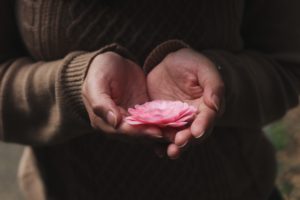
Respect the Earth and spending time in nature. Many of the postures and practices of Hatha Yoga were modeled after the natural world. Nature was revered by yogis and yoginis and illustrated in both traditional texts and mythology. Research supports that spending time in nature increases not only one’s quality of life, but also longevity, especially in women.
Daily mindful movement, breath-work and concentration methods. Simple techniques such as 10 minutes of diaphragmatic breathing quiet the mind and calm the nervous system. Research further supports practicing moderate breathing techniques to balance the nervous system, increase vagal tone, relieve pain and reduce stress.
Food as Medicine
East and South Asian medical traditions perceive one’s nutritional choices as part of healthcare and often pair such choices with herbal medicine to offer the patient a comprehensive healing platform that includes nutritious meals and medicinal formulas.
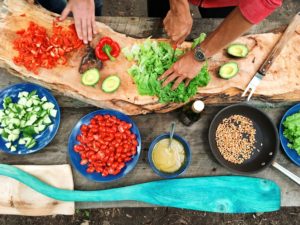
Meal planning based on the season. Using one’s senses to see, touch, smell and taste the ingredients being used; and cooking at home all enhance one’s experience with and benefits from the food. Nutrition can be used to support all of the body’s systems and focus on heart health (extra virgin olive oil), brain health (wild-caught cold water fish such as salmon) and bone health (dark leafy green veggies).
Peace and Calm
Build in rest time and stress mastery for well being. The practice of Yoga Nidra, or Yogic Sleep, is about quieting the mind and body. By bringing one’s attention inward to a state between “sleeping and waking,” one is able to rest in a sense of timelessness. In such a state, the body can touch in with subconscious thoughts and feelings — those things just outside of everyday awareness — to help heal and move on with ways in which one may be stuck in his/her life. Yoga Nidra also calms the nervous system, regulates heart rate and decreases inflammation.
Restorative Yoga. This type of yoga involves practicing mainly supine and gently inverted postures with props. Poses are practiced passively for a longer duration — up to 15 minutes. The soft, progressive holds produce a cascading effect leading to deep states of relaxation. This is perhaps the most difficult balance to maintain for most people, as the modern person is often forced to over work due to societal pressure and trying to make ends meet. Such constant stress has a snowball effect leading to suboptimal organ function, poor sleep and rest habits, mood instability and an overall sense of dis-ease. Understanding when to pause from work and carving out time for playful activities with friends and loved ones is vitally important to health.
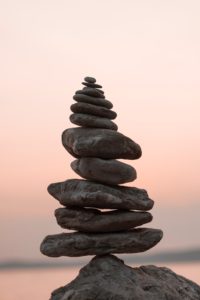
Take Good Care
From maintaining a connection to a community to spending time in nature; from practicing mindful movement and meditation to eating seasonally; from establishing a rest routine to carving out time for fun, it’s undoubtedly clear that self-care practices are key to optimal health and well being. The discipline and effort required to continually balance all of these components requires refining through different stages of life, but fine-tuning each aspect benefits our physical body, our intrinsic energy system and psychoemotional self.
Alexandra Modell is a board-certified acupuncturist and herbalist, Diplomate in Oriental Medicine, Diplomate in Canonical Chinese Medicine and an experienced Registered Yoga Teacher.
Stephen Bonzak, MS, DCCM, FICEAM, LAc is the founder and director of Health Traditions Acupuncture and Herbal Medicine Clinic in Chicago. Mr. Bonzak is licensed as an acupuncturist in the state of Illinois.
Read more about Self Care:
Inside-Out Transformation: Why the yoga sutras are better than any self-help book
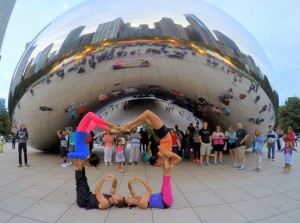
Get Quiet Chicago

























No Responses to “Smart Self-Care: Learning Balance from East and South Asian Medicine”